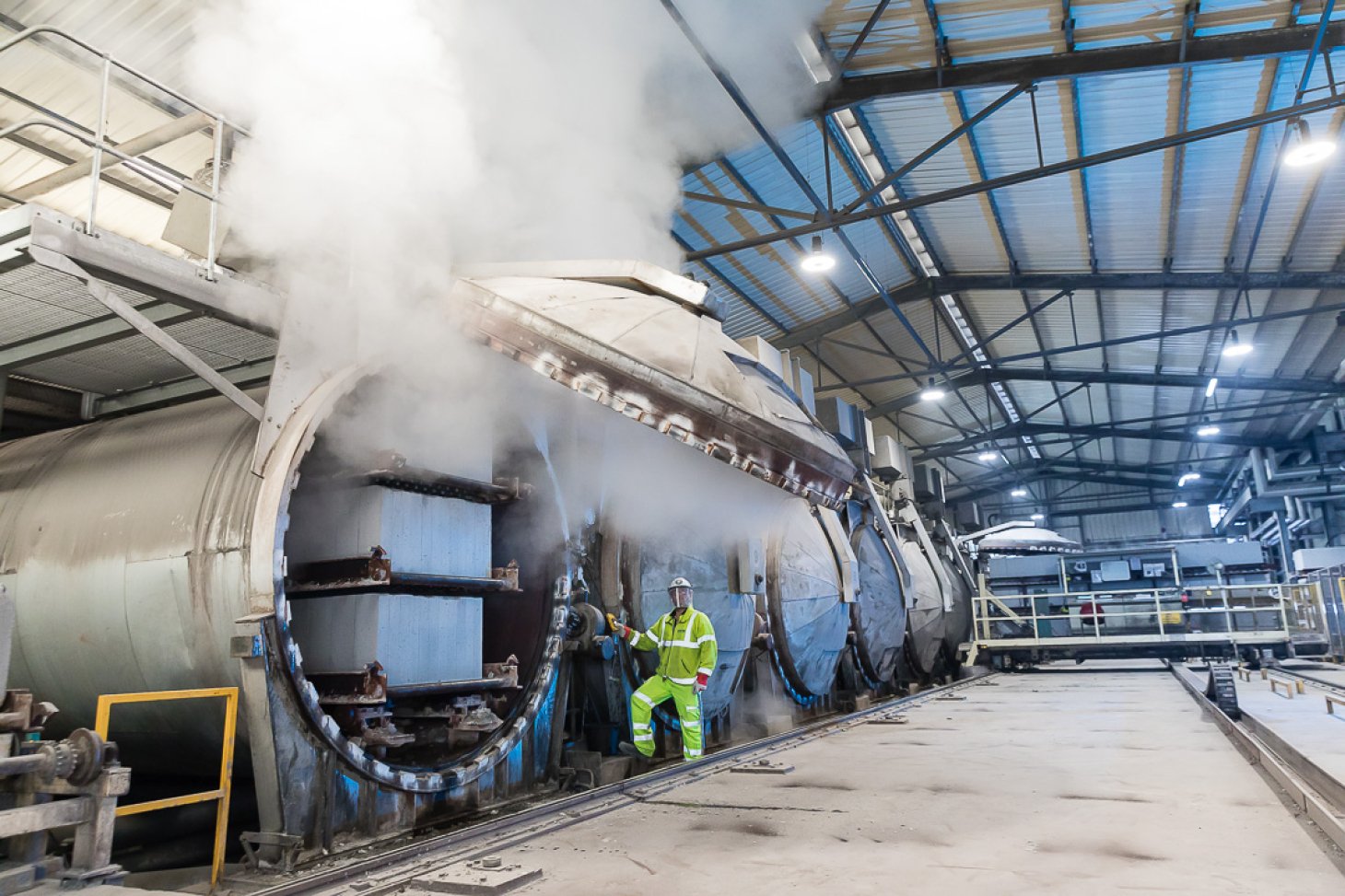
In the 1940s, when the first UK factory to make Celcon Blocks was opened, manufacturing represented around 35% of the UK economy and employed around 35% of working people.
Today, we’re looking at a very different picture. Manufacturing contributes about 10% of the UK economy and employs around 8% of working people.
Does this mean that British manufacturing is in terminal decline? We don’t think so. In fact, we’d probably argue that there is the potential for a revival of local manufacturing as the positive economic and societal benefits become clearer.
Of course, it’s an easy argument for H+H. Aircrete is not a product that lends itself to travelling long distances, so we have never had to defend our focus on local manufacturing. That does not stop us being very proud to be UK manufacturers for some very good reasons:
Local jobs bring wealth to local economies. The Office for National Statistics (ONS) estimates that every 10 people employed in a factory support another two local jobs. That’s what happens when a company invests in its plants, employing local people who in turn spend their wages locally. This effect is particularly important for areas of the country where investment has historically been low - such as Goole, where our Northern factories are based.
Manufacturing jobs should bring stability. No zero-hours contracts here, but reliable jobs with career progression and investment in training and skills. We’re proud of our track record in employing apprentices who can built a lifelong career rather than a short-term job.
In 2023 the Resolution Foundation published a report that looked at what constitutes a “good job”. It highlighted the importance of stability with the consequent opportunities for skills and careers advancement, and suggested that manufacturing provides an ideal framework for the good jobs needed to support a more equal society.
Shorter supply chains bring stability for industry. The major ingredient in our aircrete blocks is pulverised fuel ash (PFA). This is a by-product of decades of energy generation from coal-fired power stations. There’s lots of it about in the UK and we use it is a reliable and consisted raw material for our blocks.
Local manufacturing is more predictable. The pandemic, followed by a very unsettled geo-political situation revealed the fragility of global supply chains. Prices can change dramatically overnight as can the availability of materials being imported from across the globe. With factories in both the North and South of England, our blocks don’t have to travel far.
Successive governments have focused their policies on promoting service and financial sector industries while allowing – even encouraging – the offshoring of manufacturing and industrial processes. While there are good financial reasons for this focus, we’d argue that a more mixed economy, including vibrant manufacturing, provides better prospects for everyone.
It seems we’re not alone in wanting to draw attention to the benefits of local manufacturing. This year H+H joined a growing band of companies proud to display the “Made in Britain” logo, spotlighting the organisations contributing to local employment and shorter supply chains.
For H+H, supplying the aircrete that is so essential for the building of new homes, it seems particularly appropriate that British homes should be built using British blocks – made right here.